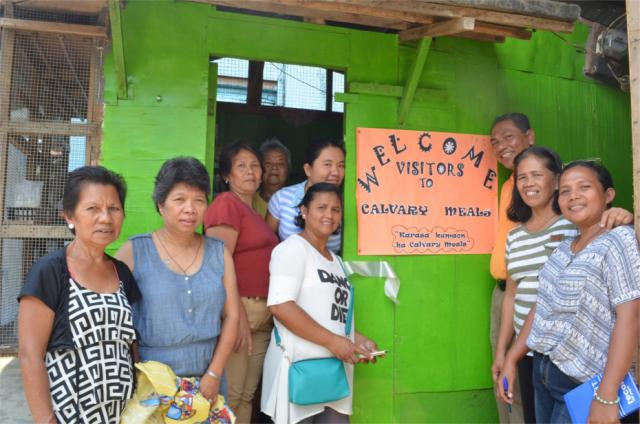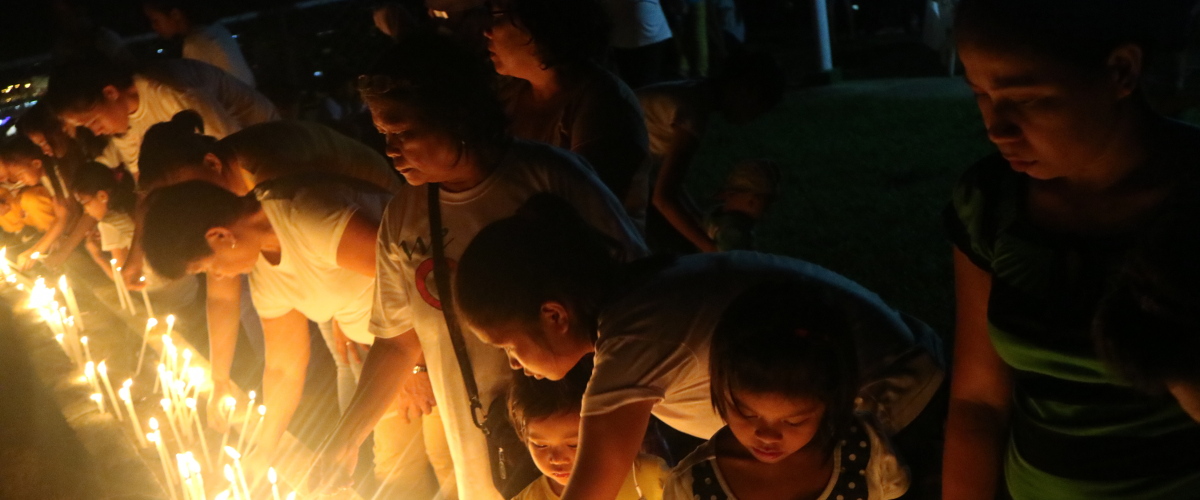A new life. That is how Lilia Advincula of Barangay Calvary Hill in Tacloban City described her community’s situation as they commemorated the second anniversary of Typhoon Yolanda (internationally known as Haiyan) on November 8. She remembers that even before Haiyan, many residents had been jobless with a stagnant quality of living. The coming of one of the strongest typhoons in recent memory made life even harder, but the surge of support that came after enabled them to rise. Now, two years later, the people of Calvary Hill have been discovering new ways to live again, and do better this time.

Its efforts also help others earn livelihoods through integration. For example, the rice they sell is sourced directly from local farmers, and the Calvary Meals team plans to get produce from organic farmers operating in Barangay Magay in Leyte and Barangay Bontay in Western Samar, both SLB-assisted areas for disaster rehabilitation. As Lilia says, “Masarap humakbang nang may kasabay (It’s delightful to move forward with other people.)”
However, despite these developments, Lilia and the rest of the organisation know there is still a lot to be done, not just in their own backyard but also for others in the broader community.
The streets and marketplace in Tacloban may be visibly busier than they were a year ago, but many people are still struggling to recover, and the National Housing Authority has only been able to complete a small fraction of its infrastructure target. With only about 1,000 of the planned 14,162 permanent housing units for the heavily hit city completed, many Taclobanons are still in temporary bunkhouses and unable to develop stable income sources.
International agencies and their local counterparts have helped fill these gaps, with many of them providing cash-for-work opportunities where jobs are scarce.
SLB believes that the creation of sustainable livelihoods in assisted communities will empower people in the face of future disasters, which is why it is working with grassroots organisations such as CHBHWA.
Apart from housing and rebuilding projects with religious partners in many Haiyan-afflicted areas, SLB is also implementing community-based livelihood programs, along with capacity building and community organising initiatives in Tacloban City and Culion, Palawan.

For example, before and after Haiyan, even basic products were too expensive for many residents. HUMABI and SAREMAGA have started operating their own sari-sari (convenience) stores selling products provided by ICCC and delivered with the help of Kawil Tours. Their efforts have influenced the lowering of prices on the island, making basic products more affordable to the people.
The walk towards full recovery takes time, but through their livelihood programmes, the communities in Culion and Tacloban City are making significant strides two years after Haiyan. As Lilia said, smiling, “Hindi naman kakalimutan pero patuloy lang (We will never forget, but we will keep going).”
Photo caption: Residents of Barangay Calvary Hill light candles at their famous Sacred Heart Shrine on the eve of the second anniversary of Typhoon Haiyan. The candles are made by the Calvary Hills BEC Homebased Workers Association.







